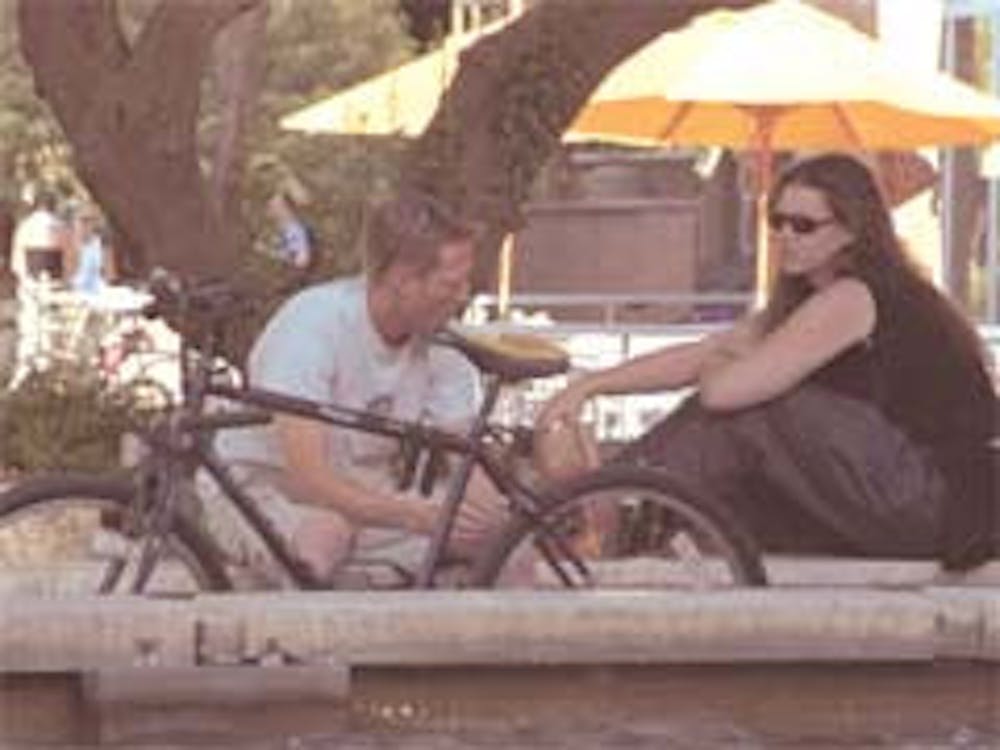At least one bike is stolen from campus every 24 hours.
Do you know where yours is?
Bike theft has been a growing epidemic on campus, and according to ASU police statistics from 2001 to 2002, 382 bikes were stolen; 212 more than the previous year.
Although there is no definite reason for this increase, Stewart Adams, ASU police crime prevention coordinator, gave a possible answer.
"There has been a general increase in crime, it seems, after September 11 [2001]," he said.
He added that ASU is a target area since there is such a high volume of bikes on campus.
Nearly 10,000 bikes pass through campus every day, according to Adams.
While ASU has seen bike theft rise in the last year, the number of bikes stolen in Tempe has stayed consistent.
Adams said there are several ways ASU police have been trying to cut down on thefts.
"We have a 'bait bike' we use that looks really nice and place it in an area that is visible, but not too visible," Adams said. "It's designed so officers can track where the bike goes from there."
He added that using this method had caught several people but the main responsibility lies with the owners of the bikes.
"The U-lock is the best type of lock, as opposed to cable or chain which can be cut easily," he said but added that using both increases the chance of keeping the bike safe.
"If we want to prevent a crime, we have to put as many blocks as we can between the target and the criminal," Adams said.
Adams also recommends that students not buy bikes that will become a target, such as those in a high price bracket.
Biology freshman Katherine Davis said she had her bike stolen from outside her residence at Palo Verde West.
"I don't think bike theft is a priority for the police," she said. "I think by now [my bike is] probably just taken apart or something, so I'll just let it go."
Sometimes when a student thinks their bike has been stolen it has actually been taken by the University.
"ASU police and Residential Life do a bike round up at the end of each semester," said Patricia Chase, surplus property and supply manager. "They put notices on the bikes, about a month or six weeks notice, telling the owner that the bike will be removed."
Chase recommends that students who leave their bikes on campus during school breaks and come back at the beginning of the semester and think that their bike has been stolen should contact Residential Life or ASU police.
After that, Chase said either ASU police or Residential Life, depending on who conducted the round up, would hold the bike for 90 days. The bike is then turned over to ASU Surplus if unclaimed and sold for $5 to $25.
The Residential Life warehouse is currently holding several hundred bikes from Spring 2002, and if they go unclaimed, they will end up in ASU Surplus next week.
Reach the reporter at christina.viloria@asu.edu.




